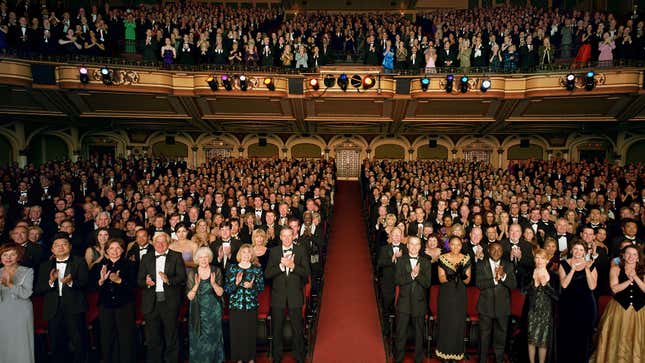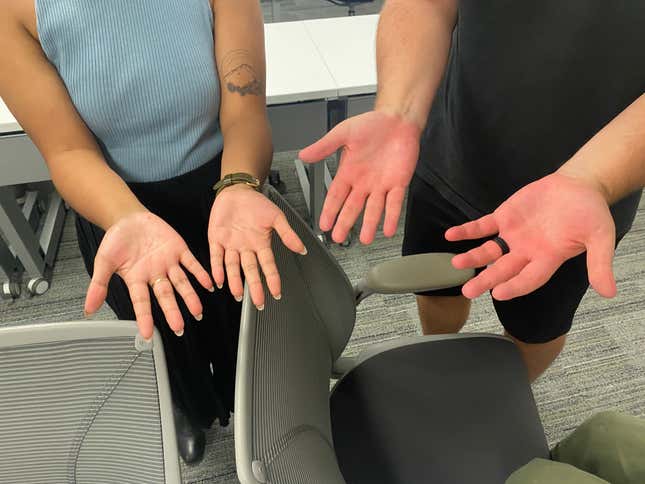I Made My Colleagues Clap for 13 Minutes Like They Do at the Venice Film Festival
We put our bodies on the line and clapped for as long as The Banshees of Inisherin's standing ovation.
EntertainmentMovies

What does clapping for 13 straight minutes do to a person? That question, along with #spitgate, has occupied too much of my mental space throughout this year’s Venice Film Festival.
A film I did not know existed before this weekend, The Banshees of Inisherin, received a standing ovation that lasted that long on Monday—the longest at the festival so far this year.
Fancy film fests always feature absurdly long ovations as the credits roll, because celebrities fucking love to clap for themselves (and each other). This year has been no different: Brendan Fraser cried and aw-shucks’ed his way through The Whale’s six minute standing ovation; Florence Pugh cut Don’t Worry Darling’s applause short around the four-minute mark by walking out of the theater; White Noise got an unremarkable two-and-half minutes of applause, despite star Adam Driver’s penchant for ovation theatrics. (Last year, he lit a cigarette during Annette’s five minute standing ovation at Cannes–a performative bit during a performative celebration of a performance! I love the theater of theater!)
-

-

-

-

-

-

-

-

-

-

-

-

-

-

-

-

-

-

-

-

-

-

-

-

-

-

-

-

-

-

-

-

-

-

-

-

-

-

-

-









































